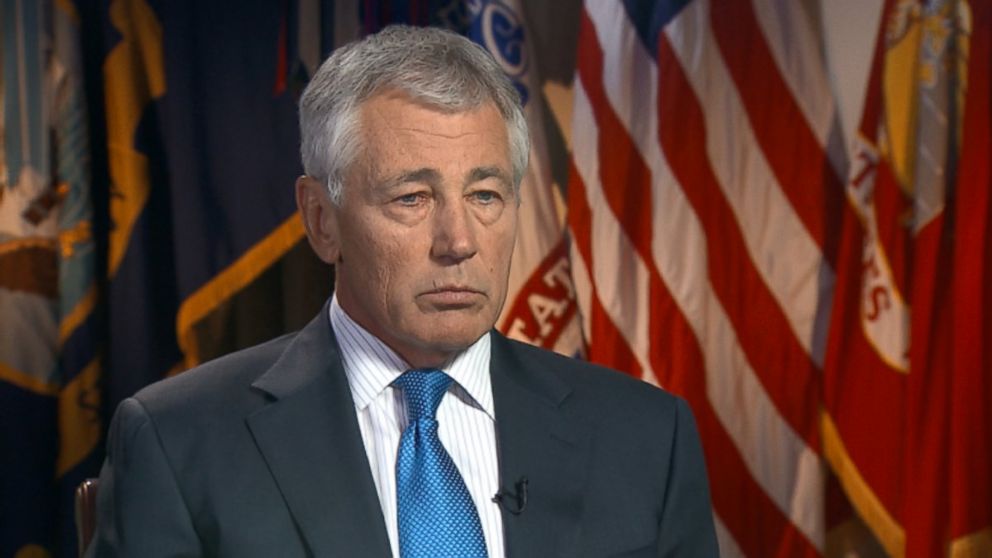How Chuck Hagel's Resignation Might Affect ISIS Fight
ISIS supporters are celebrating the secretary's resignation on Twitter.
— -- Chuck Hagel’s departure as Defense Secretary will probably have a minimal impact on the administration’s three part strategy to fight ISIS in Iraq and Syria that is expected to take years. Hagel had raised questions about the strategy’s lack of focus on the Syrian regime of Bashar al Assad, but not about the president’s decision that American troops sent to Iraq will not serve as combat troops.
Online supporters of the Islamic terror group ISIS have taken to Twitter to cheer the resignation of Chuck Hagel, claiming it was ISIS that forced him out.
An Arabic-language hashtag that roughly translates to “ISIS toppled American Defense Secretary” has been used dozens of times on the social networking site, sometimes alongside images mocking Hagel and the Obama administration. It’s unclear if the social media-savvy terror group actually started the campaign, or if it was the just product of the group’s online supporters.

Regardless of how ISIS supporters may want to interpret Hagel’s resignation, it does not mean the administration’s strategy to combat ISIS is about to change.
The three part strategy is focused initially on pushing back ISIS’s territorial gains in Iraq by providing material support, and sending American military advisers to advise and train Iraq’a military forces. There are currently 1,400 U.S. troops in Iraq and President Obama has authorized that those numbers could grow to 3,100 specifically for an advisory and training mission. The administration has been emphatic that these U.S. military personnel are not “boots on the ground” who will serve on the front lines as combat troops.
The U.S. and some of its coalition partners are also conducting airstrikes in Syria to hold ISIS in check by attacking its logistical operations and training facilities that support ISIS fighters inside Iraq.
The third part of the strategy plans to train as many as 5,000 Syrian moderate rebels to fight ISIS inside Syria. However, that training program in Saudi Arabia is going to develop slowly with the first trainees not returning to Syria until well into 2015.
It is the administration’s policy that the American troops sent to Iraq will not be “boots on the ground” serving on the front lines as combat troops that has drawn the most criticism on Capitol Hill.
Members of Congress like Sen. John McCain (R-Ariz.) have criticized the Obama administration’s strategy for locking itself into the concept that American ground troops will not be needed.
Joint Chiefs Chairman Gen. Martin Dempsey has told Congress that there may come a time when U.S. military personnel may have to accompany Iraqi front line troops in the future. He has explained that major complex fights like the Iraqi effort to retake Mosul from ISIS might require U.S. forward air controllers who could help call in airstrikes.
Hagel also raised concerns internally with the president’s national security team that the administration’s strategy did not address what to do about the regime of Syrian President Bashar al Assad.
In late October, Hagel would not confirm to reporters that he had sent a letter to National Security Adviser Susan Rice laying out those concerns. But he did acknowledge that the president’s advisers owe him their honest and direct advice.




